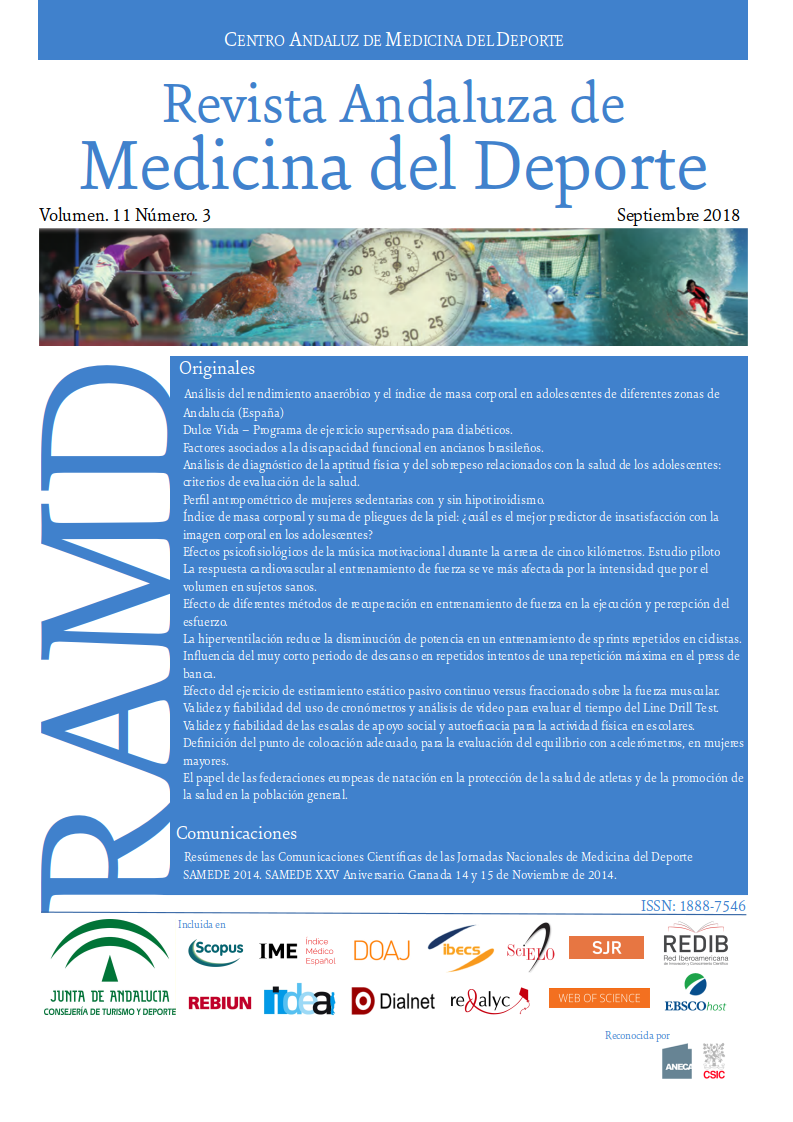Psychophysiological effects of motivational music during the five kilometers run. A pilot study
Keywords:
Actividad motora, Música, Cerebro Motor activity, Music, Brain Atividade motora, Música, Cérebro
Abstract
Objective: Investigate the psychophysiological effects of motivational music for 5 km run.
Methods: Thirteen amateur runners were subjected to two random experimental conditions during 5 km run. Functional infrared spectroscopy analyses were previously used to investigate the motivational qualities of music and its activation in the prefrontal cortex. During the proposed exercise, psychophysiological changes (performance, subjective perception of effort and heart rate) were used for each of the 12.5 laps (400 meters).
Results: The chosen songs were able to activate the prefrontal cortex area (over 0.5 ua.μM positive differences). Motivational music increased performance related parameters (Control ‐ 27.02 ± 0.35 min vs motivational music ‐ 25.31 ± 0.31 min; improved in 6.33%). Larger size effect was identified during the early laps (Cohen's d) (0.99 ‐ 1st lap; 0.62 ‐ 2nd lap; 0.55 ‐ 3rd lap; 0.61 ‐ 4th lap). Heart rate was higher for motivational music condition, considered a derivative response of greater physical work done.
Conclusion: The music was able to activate the prefrontal cortex area and alter psychophysiological and performance parameters.
Published
2018-04-20
Section
Originals


